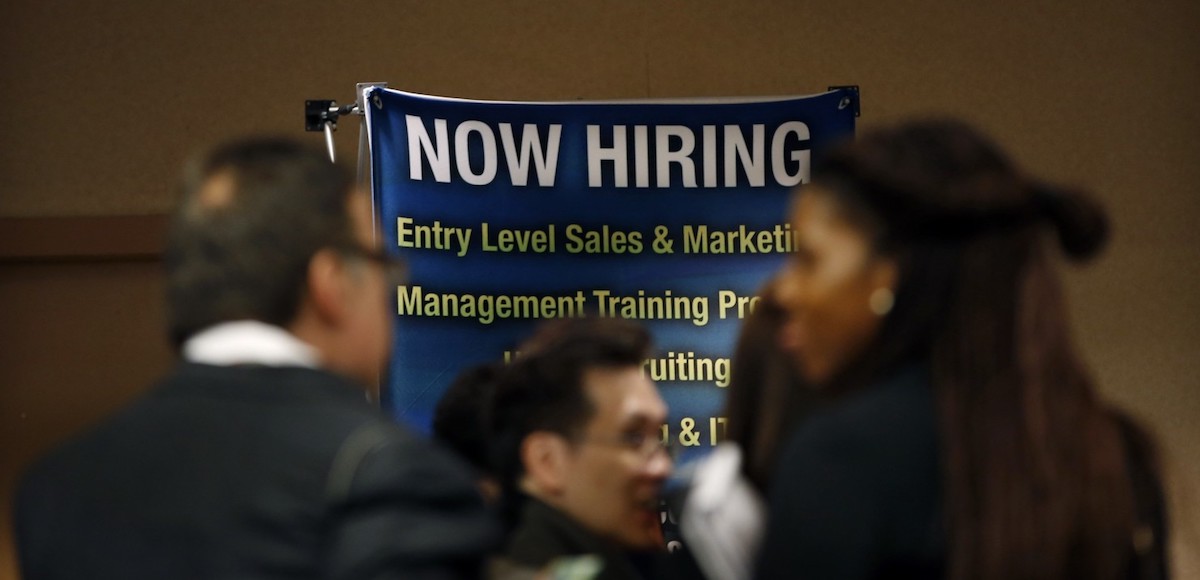

Job seekers wait to meet with employers at a career fair in New York City, October 24, 2012. (Photo: Reuters)
The number of job openings in the U.S. reached a new record high of 6.7 million on the last business day of April, the Bureau of Labor Statistics (BLS) said. When the Labor Department (DOL) began tracking job openings in December 2000, the number of unemployed persons per job opening was a seasonally-adjusted 2.6%.
It’s now just 0.9%, an all-time low.
The job openings rate was 4.3% in April and the number of job openings was little changed for total private and for government. Hires and separations were little changed at 5.6 million and 5.4 million, respectively.
The hires rate was 3.8%. For separations, the quits rate was unchanged at 2.3% and the layoffs and discharges rate increased to 1.2%. Over the 12 months ending in April, hires totaled 66.1 million and separations were 63.7 million, for a net employment gain of 2.4 million.
Job openings increased in durable goods manufacturing (+33,000) and information (+26,000), but decreased in finance and insurance (-84,000).
Meanwhile, the Employment Situation in May, commonly referred to as the monthly jobs report, found the U.S. unemployment rate ticked down to 3.8%, the lowest since April 2000. That’s also a match for the lowest rate in half a century.
The U-6, which includes all persons marginally attached to the labor force plus total employed part time for economic reasons, has fallen from 8.4% since May 2017 to 7.6%. The unemployment rate for blacks and Hispanics are all at all-time record lows.
Survey data indicate that Americans are feeling the economic recovery ramp up under the Trump Administration. Americans are much more optimistic about the labor market.
A recent Rasmussen Reports found 68% of Americans believe it’s “possible for anyone who really wants to work to find a job” in the current environment, the highest number ever since tracking began in January 2009.
Fifty-eight percent (58%) say it’s “possible for just about anyone in the United States to work their way out of poverty,” also the highest since tracking began in January 2009.
The most damning journalistic sin committed by the media during the era of Russia collusion…
The first ecological study finds mask mandates were not effective at slowing the spread of…
On "What Are the Odds?" Monday, Robert Barnes and Rich Baris note how big tech…
On "What Are the Odds?" Monday, Robert Barnes and Rich Baris discuss why America First…
Personal income fell $1,516.6 billion (7.1%) in February, roughly the consensus forecast, while consumer spending…
Research finds those previously infected by or vaccinated against SARS-CoV-2 are not at risk of…
This website uses cookies.
View Comments
It's as if Trump isn't worst President ever or something. ?